In the days leading up to Fantastic Fest, the normally jovial atmosphere was marred with scandal. The full scope of which can be read here, but in summation, there were a number of sexual harassment and assault claims involving major pillars of the festival, and the subsequent handling of those claims by said pillars. As a result, the festival lost two major programmers who quit over the news, guests cancelled their appearances, and Fox Searchlight pulled the opening night movie from the festival lineup.
Coralie Fargeat thought about pulling her film from the lineup as well, but instead proceeded with its screening, realizing the film’s inclusion would stand as a powerful message; we will not remain silent any more. Her conviction and explanation prior to the film’s screening won me over instantly, and the brutal genre film that followed her fierce words only affirmed what I’d already suspected; Revenge is a powerful anthem and a scathing critique on rape culture meant to serve as a starting point of discussion (review). It’s a film that’s only grown in relevance given the Harvey Weinstein allegations that have rocked Hollywood in the weeks since.
After the screening, we sat down with Fargeat to discuss the importance of female voices in the genre, the social context of her narrative, just how tricky it was to shoot with all of that sticky, slippery blood, and more. Read on for our spoiler free chat.
I wanted to start by thanking you for your powerful statement before the screening and for deciding to proceed with the screening in the first place. This film presents a very necessary voice that’s been missing from the genre. I think this was the first rape/revenge film from a female filmmaker, can you speak on the film’s creation?
I am a huge fan of genre films, I really like those universes where you can create, in a way, another reality. Growing up I was a fan of Robocop, Rambo, all of those types of people not in your everyday life. You can create a world with visuals and sound, so I really wanted to explore that for my first movie, and I think it came at a time in my life when I felt the necessity to have this strong symbolical story about this character transforming from empty, weak, or seen as empty and weak, to a very strong and powerful woman. As a woman, I think for a long time I had both parts in me, and you’re influenced by how you’re looked at, how you can be judged based on the representation of women in media, and how you see yourself after that. I didn’t really think about it too much when I started to write, the idea really came first from the character. Just having this idea of having somebody that everyone would think is weak and empty and transforming into a powerful one. Once the elements came together around that, I let my imagination work and found my setting in the desert, all of the environmental images that inspired me, it just all came together.
Despite all the carnage and blood, the thing that stood out most to me is just how authentic these characters are. The three men at the center of the story are all authentic portrayals of what women encounter on a regular basis; each kind of represent a different type of evil. How did you set about creating such authentic voices?
The idea of the story, and all of its elements, was to be representative in a very symbolic way of all kinds of violence toward women. Not only physical; it can be verbal or it can be psychological. I really wanted to have dark characters that are really kind of caricatures that could embody bad behavior that we’ve all encountered.
This movie is a discussion piece, and it’s a bit of a powerful anthem for women. What would you like men to come away with after watching?
I think I’d like them to have the same discussion as women. I’d like them, and everyone, come away realizing there is still a lot to do achieve real equality. I think this will of course affect men as well. I know for me, that men of the new generations I see are more aware, that they’re a lot more feminist, and I think we really need that to achieve equality. I think it’s a lot of a generational matter; there are centuries of mentalities behind us that need to be changed that won’t be happening in one day. It’s also a fight that we seem, unfortunately, very weak and it seems as though there’s regression everywhere. So I really think that we need male and female in solidarity, to be aware of it, and not fighting, but building together to make a change. It’s so culturally embedded and subconsciously absorbed that it’s very hard to really change, so we need everybody to achieve that, I think.
Are you familiar with the rape/revenge sub-genre, and films like I Spit on Your Grave?
In fact, not at all. The only one I’ve seen is The Last House on the Left. But I haven’t seen any others, and I’m not a fan of those movies.
I wanted to circle back to the desert setting, which you mentioned in the Q&A for being a sort of universal setting, but I imagine it would also be an extremely harsh environment to film in. What was that like?
For me the idea to set the story in the desert was the perfect way to present the violence that was going to grow, and the characters that were going to get crazier and crazier. That they were going to become more primal and become hunters, so that was a symbolic way to present that. When we shot it, it wasn’t very hot; we were cold most of the time, actually. So for Matilda Lutz, it was very hard because she’s not hot at all- she’s so cold because she’s in a bikini nearly the entire time and there are freezing winds that she’s dealing with. I needed this look that it was hot, that people were sweating on screen, that they were in harsh, hot conditions, and in a way it was hard on set. We were tired; it was long days. It was very physical, and I needed the heat sensation. I was very careful that we added the sweat if it didn’t exist. It was important to have the elements to represent the metaphorical aspects of what’s happening in the characters’ mind.
The amount of blood, especially during the movie’s climax, how difficult was that on a technical level? It looks like it would be so difficult to reset a shot.
That really was one of the most difficult parts to shoot. Especially because no one would expect there would be so much blood on set, and that it would be so slippery. Or that it would be such a nightmare to shoot in that small corridor. None of the crew could walk without falling and be covered in blood. So basically, I had a very precise idea of what I wanted, the chase I had in mind. Most of the crew couldn’t be on set because it was too small and too slippery, so I was literally cleaning the floor myself just to be able to walk and direct the actors. For two days it was me, the cinematographer, and the two actors just going nuts shooting that scene, screaming, ‘More blood! More blood!’ and people not understanding what we were shooting. The actors couldn’t touch the walls because the blood was so sticky, and everyone was falling. So yes, it was really quite something.
There’s not a whole lot of genre films in France, do you think that that’s something that’s changing? Between Julia Ducournau’s breakout last year with Raw and this amazing debut, I feel like women are making powerful statements about what the genre can offer.
That’s true. Something really happened last year with Julia Ducournau’s movie, and I think it reactivated interest. In France, a lot of directors and movie fans love genre films and want to make genre films, but there is a kind of a blockage with the financing and with audiences that doesn’t line up in terms of success. Julia’s film was so successful and widespread that I think it made financiers realize genre films would be wanted; that they could be successful. Now I think it’s true that there are new initiatives in France aimed toward genre films.
Will your next film have genre elements as well?
Yeah. I’m still working on the idea; it’s very fresh and not set up at all yet, but there will be genre elements in it even if it will be totally different from this film. I would still really like to explore different universes and stories, but yes, I think it will be a story that will allow me to create a very unique universe in terms of visuals and emotions. This is what I really like as a director.
Revenge has been acquired by Shudder for exclusive, early 2018 release.
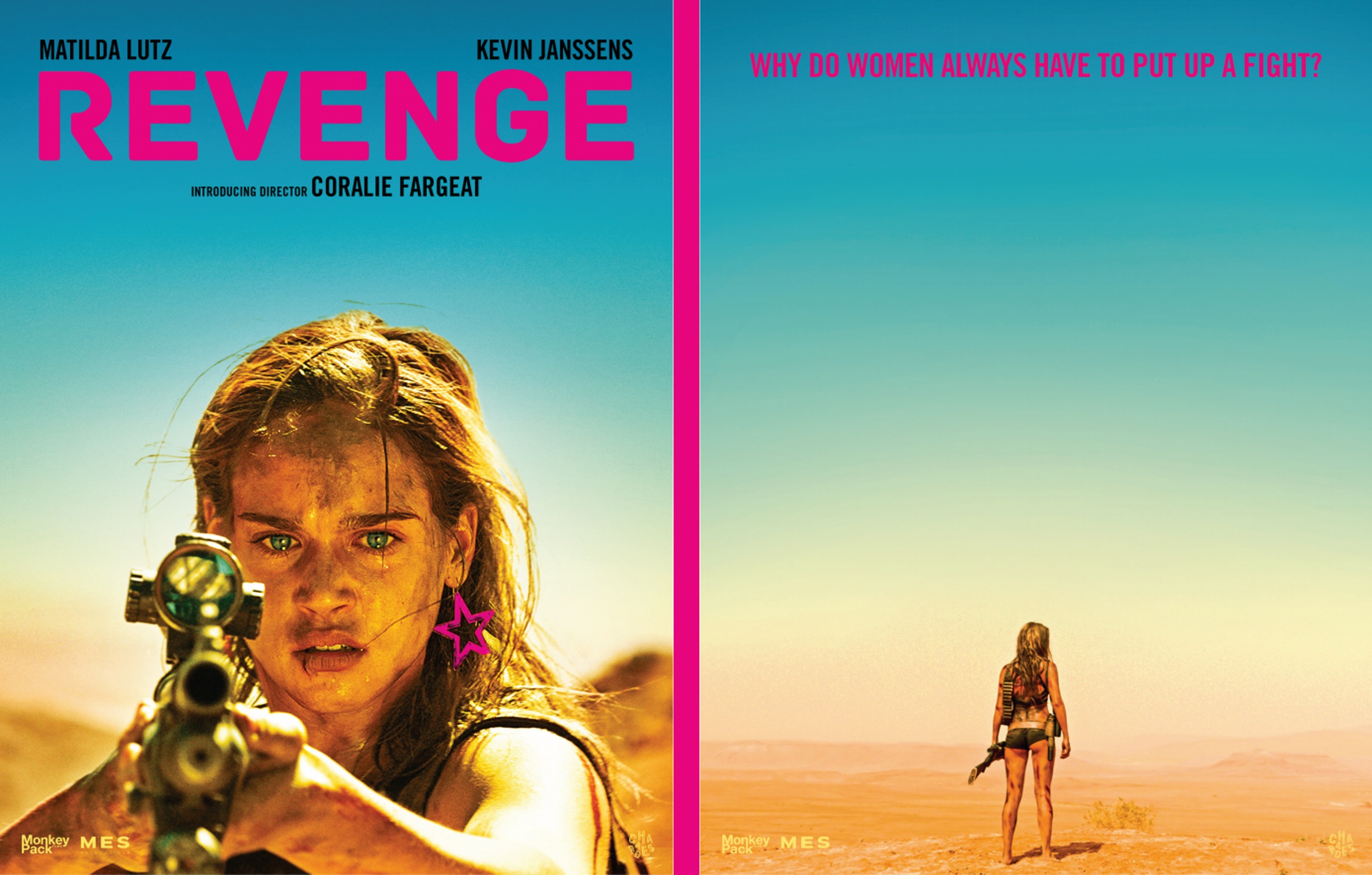

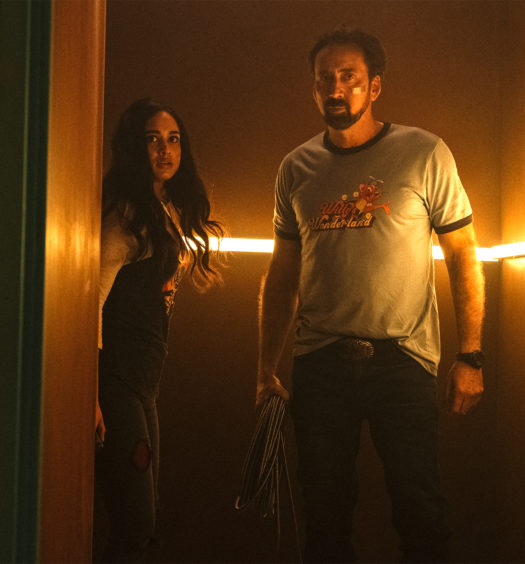
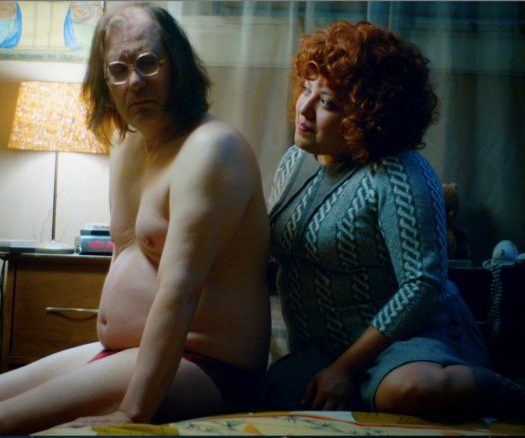



























October 16, 2017
Q&A: Writer/Director Coralie Fargeat Talks ‘Revenge’ https://t.co/H34cchXQSd